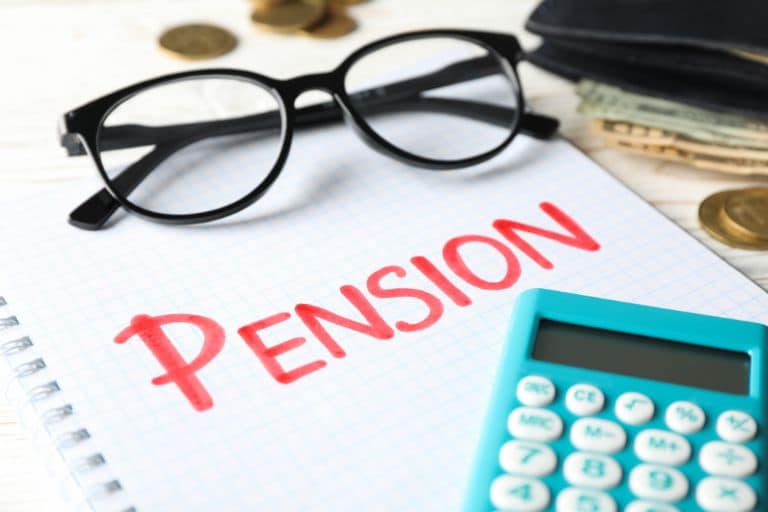Ok, ok, not the most thrilling of headlines, I admit. However continuing on our Wealth theme, this week, we are on the subject of pensions. Woohoo. Seen as a ‘must have’ for your retirement plan unless you’ve got a successful investment strategy, won the lotto, have a mega inheritance, or a property portfolio. (Delete as appropriate). Pensions are hot news. Especially in France. Pension reform anyone? Let’s consider the benefits of a pension plan.
PENSION OVERVIEW
For want of stating the obvious, pensions are designed to give you a guaranteed income for life when you retire. How much you receive involves many factors including the type of pension you have chosen.
Pension plans come in a variety of shapes and sizes with different terms and conditions depending on the plan and investment strategy you opt for.
For this ‘benefits’ overview, I’m going to pop them into three header categories – Workplace Pension – Personal Pension – State Pension.
WORKPLACE PENSION
A bit of background. In 2012, the UK introduced automatic enrolment for a workplace pension (also known as a company pension). Initially started with larger companies but subsequently rolled out to all companies. In a nutshell, its purpose is to ensure that new employees are automatically enrolled in a pension scheme. Thus helping people save towards their retirement.
To qualify you need to be between the ages of 22 and State Pension age and earning a minimum of £10,000 per year. There are a few exceptions when your employer does not have to automatically enrol you.
By law, the minimum contribution of 8% of your earnings must be paid into your pension. 3% by your employer and 5% by you, the employee.
Some companies offer to match your contribution and to also put in more than the minimum 3%. Well worth sleuthing workplace benefits when you are looking into a new job!
You might have the opportunity to put in up to 10% of your monthly salary. That percentage is matched by your employer. A total of 20% of your earnings now going towards your retirement. Thereby doubling your contributions. An offer to grab with both hands in my humble…
If you work in the government sector employer offerings are generally much higher. So company contributions are just one of the benefits of a pension plan.
Regarding contributions, the government offers tax relief of 25% towards your contributions. For basic rate taxpayers, if you put in an extra £100, the government will top it up with £25 in tax relief. Making a total contribution of £125. That’s why, if your company provides a bonus scheme, savvy employees put their bonus into their pension to maximise their benefits. The result is less tax and more gain. All hail.
Further info on pension contributions can be found here.
If you’re lucky enough to have a defined benefits pension plan (also known as final salary), your employer would have agreed to pay you a retirement income based on your salary and number of years of service. Lucky, because these plans do not generally require employee contributions. Their setup and guarantee viewed as lucrative. Due to the employer expense, they’re also few and far between.
PERSONAL PENSION
There is nothing to stop you taking out a personal pension plan and making contributions yourself. Sometimes your employer will pay into your personal pension plan but that is not a requirement or a given.
Self-employed? The main benefit of a personal pension is the tax benefit. The same rules apply here as for those on a company pension. For both basic rate taxpayers and higher tax earners. The latter of whom can benefit from additional tax relief making for an advantageous way to increase your retirement pot.
STATE PENSION
Set up by the government, the State Pension is dependent upon the number of years of your National Insurance contributions. If you qualify for the full State Pension, then you are eligible to receive £203.85 per week.
SYNOPSIS
In conclusion, both workplace pensions and personal pensions allow you to access 25% of your pension pot tax-free at the age of 55. This is due to rise to 57 years in 2028. These pensions do go up and down depending on the investment strategies of the plans you have chosen.
The State Pension age is also being reviewed and is set to increase from 67 years. The latter, as you have seen by the figures, does not provide you with a great income. Unless that is, you have your ducks in a row and other plans in place to supplement it. You might like to look at Financial Planning for Women.
Either way, if used wisely pensions can provide a great source of retirement income, generally due to the way they work with compound interest, alongside tax relief.
Oh, and some people might have multiple pensions, depending on how many jobs they’ve had. Inserts sheepish grin. Aside from pensions, you might wish to see that you are on track with your financial plan. So there you have it, the benefits of a pension plan. Over to you. Lover of pensions or not? Do let us know in the comments!





